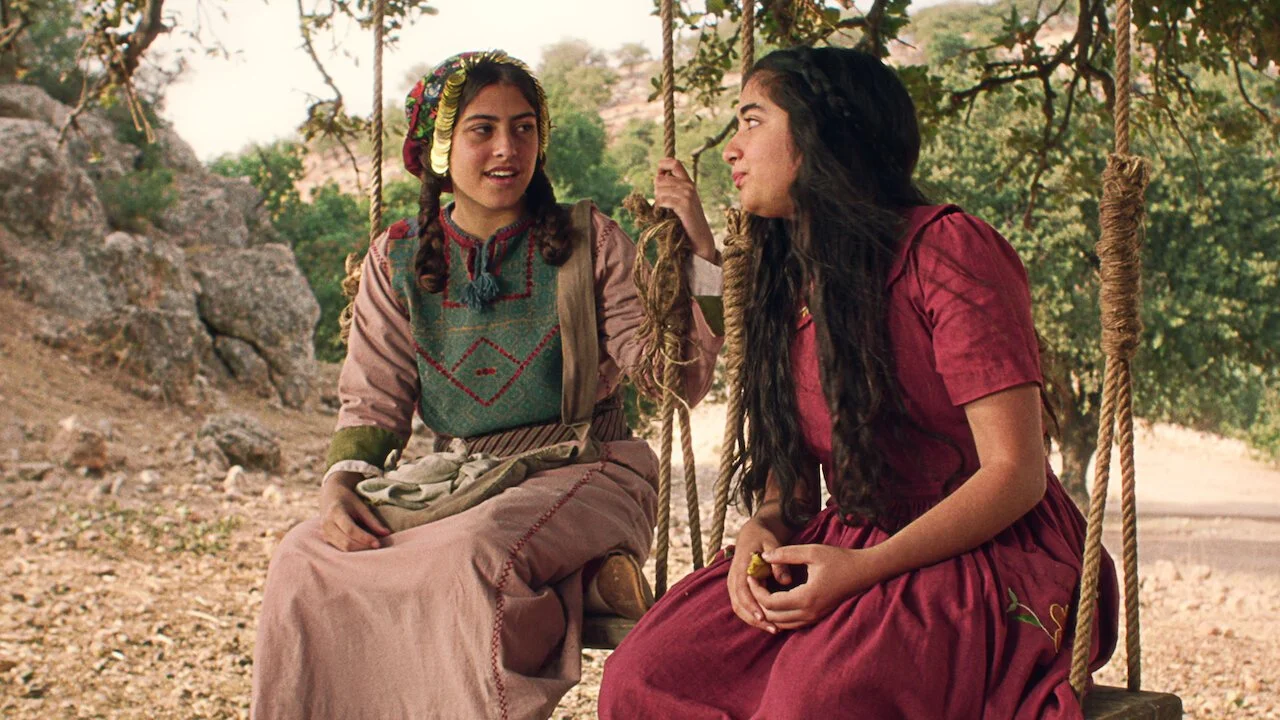Film Review: Farha
The following was originally published in the Palestine in America Film Edition. Please support our work by ordering a print copy, downloading a digital edition or becoming a subscriber.
Palestinian culture made mainstream strides in December. Not only was there mass solidarity with Palestine on display at the World Cup, major streaming platform Netflix also shined a spotlight on the Palestinian experience with the recent move to stream Farha, a Jordanian film that tells a survivor's firsthand account of the Zionist invasion.
Directed by Palestinian-Jordanian director Darin Sallam, Farha takes viewers back to 1948, just days before the events that would mark the beginning of the Nakba. Karam Taher plays the titular character, Fahra, an ambitious teenager aspiring to further her education instead of being married off per her father’s wishes.As their village is invaded by Zionist forces, Farha’s father locks her in a storage room for safety in the midst of chaos, vowing to return for her before he joins the fight against the invaders.
Instead of examining the Nakba on a wider geopolitical scale, Sallam focuses the story strictly on Farha’s experience in that storage room where the only sources of light are a small round window and cracks through the door. Gunfire and bomb explosions are heard in the distance as Farha paces back and forth, completely helpless as she waits for her father or someone else to find her and unlock the door. As the days pass, we begin to see the once fiery bright-eyed girl fade into a mere shell of her former self, surviving solely off whatever remnants of food and water were left in the room.
The film is quite anxiety-inducing as we watch Farha frantically pace back and forth across the storage room with no means of escape (despite her best efforts). Taher’s performance is gut-wrenching as viewers are stuck in the room with her consuming feelings of claustrophobia and helplessness.
Sallam holds nothing back in retelling this true story that was passed down by her mother, who heard it firsthand from the woman whom the character Farha is based upon. This coming-of-age story is one rooted in the trauma and heartbreak that so many Palestinians experienced in 1948.
It should come as no surprise that this film has garnered the ire of Zionists and their sympathizers who refuse to acknowledge this genocide. Israeli leaders have labeled Fahra historically inaccurate, as if the lived experiences of hundreds of thousands of Palestinians who were expelled from their homes never happened. In particular, they’ve decried a scene showing an Israeli firing squad executing a family as they try to seek refuge from the violence. The fact that they are disputing the events of this film only proves Zionists fear losing in the court of public opinion, and they are well aware that films like Fahra will bring the details of the Nakba to the mainstream public. This fact undoubtedly intimidates Zionists who wish to erase and gaslight those who are unafraid to expose the truth about the Nakba.
Fahra has received wide critical acclaim in the festival circuit over the last two years, but with its availability on Netflix, it can now reach and educate a non-Palestinian audience.
While I am not Palestinian, as a Puerto Rican, I can empathize with the feeling of knowing my family's homeland has fallen victim to Western imperialism. Puerto Rico has not known independence since Columbus landed on our shores in 1493. At one point in history, the American government outlawed the very presence of our flag, the symbol of our pride. Because of this, the resiliency of the Palestinian people has always resonated with me, and I am absolutely positive that the story of Farha will resonate with you too.





